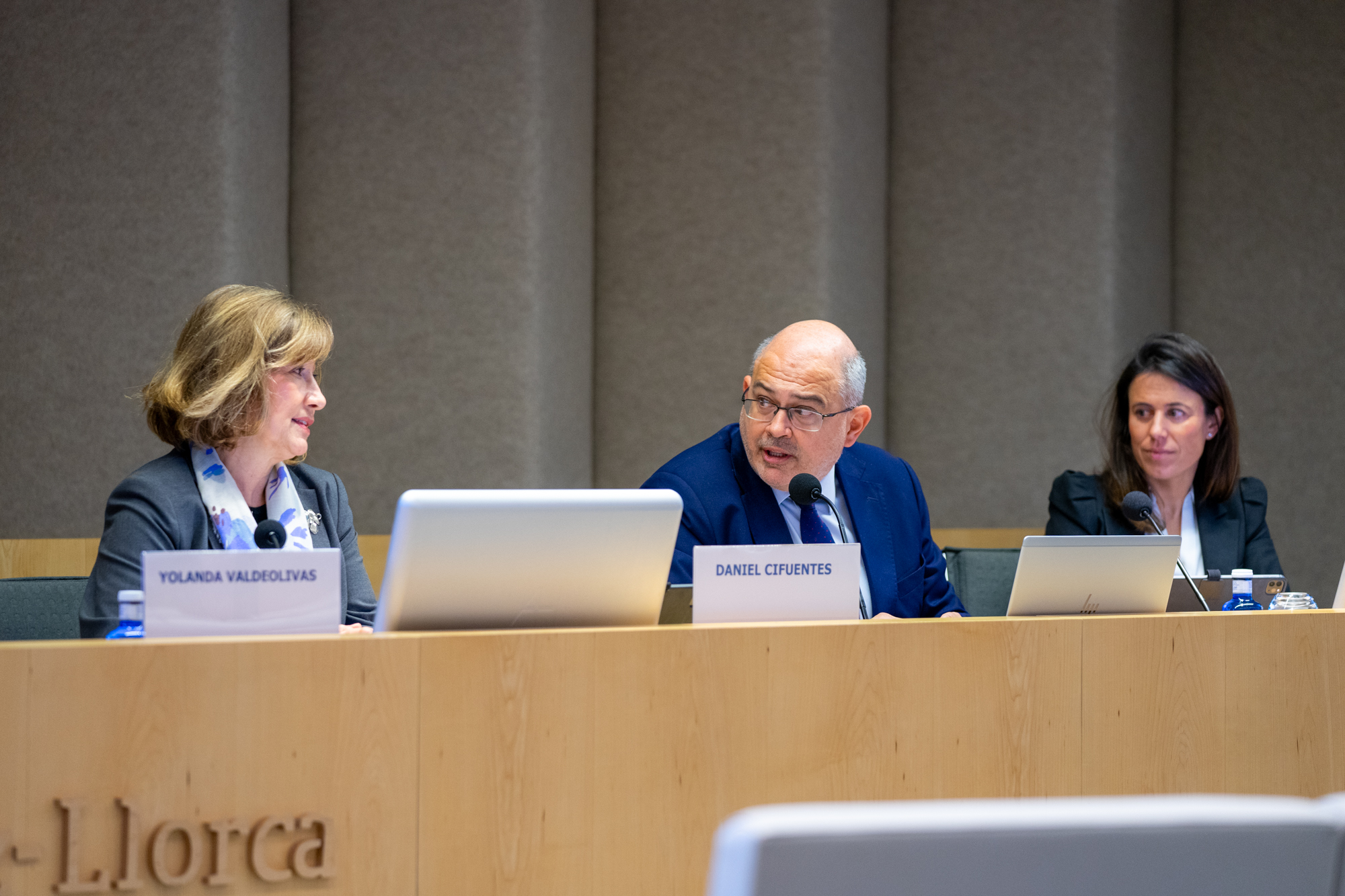Pérez-Llorca’s Employment, Compensation and Benefits practice area held a new ‘Pérez-Llorca Labour Law Update’ session with the participation of partners Daniel Cifuentes and Isabel Moya and Of Counsel Yolanda Valdeolivas, who discussed the latest and most significant rulings shaping the labour law sector, as well as the main issues regarding absenteeism in the workplace.
Daniel Cifuentes opened the seminar, and began by analysing the main trends in the labour market. These included the reduction of the maximum working week and the right to digital disconnection, included in the recent Draft Law; Royal Decree 1026/2024, which strengthens equality and non-discrimination of LGBTI people through mandatory protocols against harassment and violence; and the new Organic Law on the Right to Defence, which extends protection against reprisals to family members of workers within the same company.
In terms of dismissal, Cifuentes highlighted several Supreme Court rulings, such as the one handed down on 16 September 2024 which declared that termination clauses for poor performance would be considered null and void when they do not take into account the worker’s personal circumstances and are not negotiated with legal representation. According to Cifuentes, these provisions, described by the Supreme Court as ‘accession clauses’, are too generic and do not take into account subjective factors, as well as applying to vulnerable groups. “This ruling strengthens the need for companies to analyse situations of underperformance on a case-by-case basis and not resort to standard models that can lead to nullity,” said the Pérez-Llorca partner. He also discussed the Supreme Court ruling of 20 December 2024, which considers collective dismissals used to avoid a subsequent corporate succession to be fraudulent, establishing new criteria on the legality of these processes. “This ruling is particularly significant as it underlines the importance of respecting continuity of employment and workers’ rights in restructuring processes,” Cifuentes added.
Then, following the usual ‘Pérez-Llorca Labour Law Update’ session format, the top three most significant judgments from recent months were presented. This time, first place went to Supreme Court Ruling 2961/2023, handed down on 19 December 2024, which deals with severance pay for unfair dismissal. The ruling establishes that the compensation established in Article 56 of the Workers’ Statute cannot be increased through the courts to include additional compensation based on the specific circumstances of the case, as this would violate Article 10 of Convention 158 of the ILO.
For Valdeolivas, this was a long-awaited ruling due to the disparity of criteria between different courts on additional compensation, as the fixed compensation of Article 56 of the Workers’ Statute did not always effectively compensate for the damage suffered. “The Supreme Court’s ruling is significant because it clarifies that, in order to apply conventionality control based on international standards, such as Article 158 of the ILO or Article 24 of the European Social Charter, there needs to be a clear and precise international standard that has a directly applicable purpose and does not require the development of domestic legislation,” explained Valdeolivas. With this in mind, she pointed out that on numerous occasions conventionality control has been applied based on judicial interpretations of international standards. Valdeolivas concluded that the Spanish compensation system is consolidated through fixed compensation rates that guarantee “legal equality and equal treatment for all workers in identical situations.”
The third part of the event covered the impact of absenteeism in the workplace and strategies to manage it. Isabel Moya analysed the legal mechanisms for monitoring absenteeism, stressing that in cases of reasonable suspicion, and always respecting the proportionality test, companies can resort to tools such as monitoring social networks or hiring detectives: “If there are indications of fraud, the company has room for manoeuvre, while always respecting the law.” With regard to unfair competition, she added that these cases are easier to identify, as they involve activity that is incompatible with the employment contract.
As for dismissal for absenteeism, Moya noted that Law 15/2022 expressly prohibits basing a dismissal on an employee’s health. “It is not possible to justify dismissal on the grounds of incompetence when the real cause is a chronic illness; to do so would be discriminatory,” said Moya. In addition, she addressed the issue of the temporary disability supplement, noting that it is not compulsory unless provided for by collective agreement or internal policy. “If a company decides to grant this, it should do so in a regulated and non-arbitrary manner,” she concluded. Lastly, different ways of discouraging absenteeism from an economic point of view were presented.
